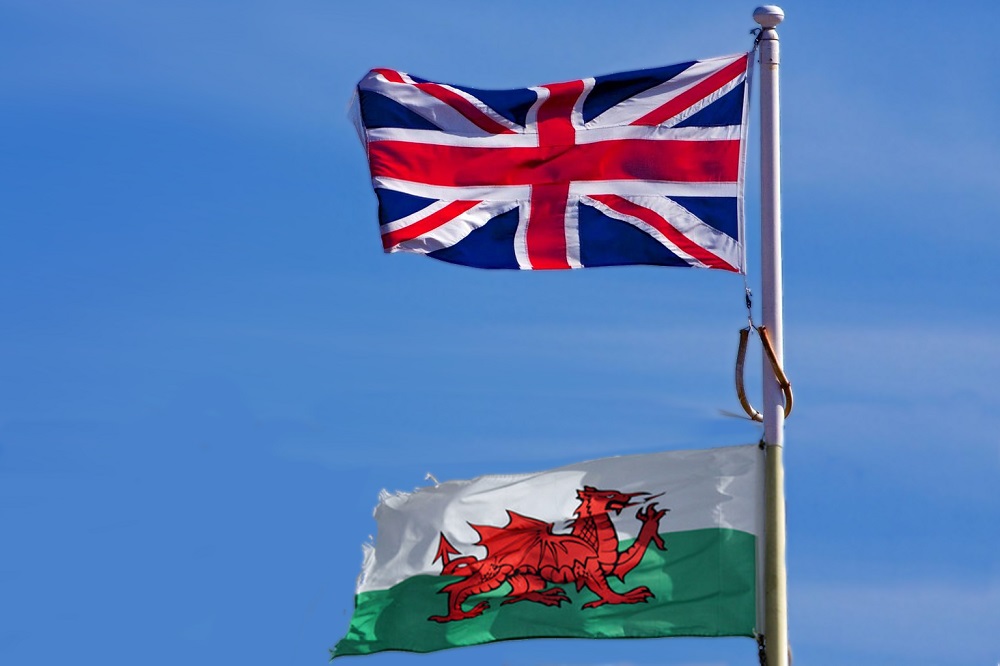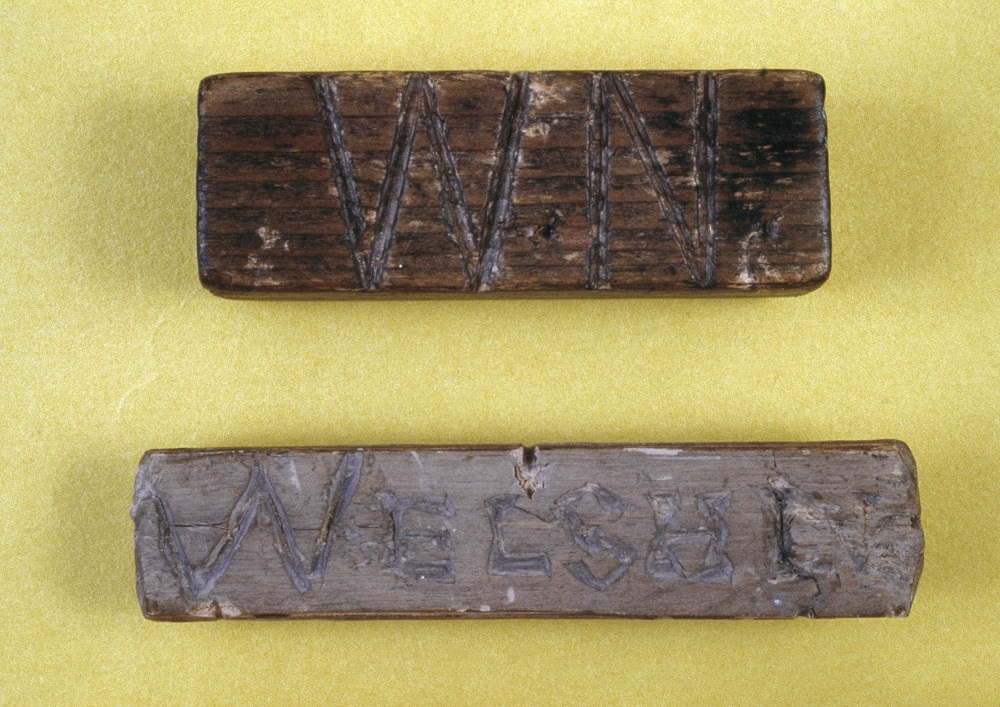English fragility, shame, and the Welsh language debate

James Downs, Mental Health Campaigner
When posts about the Welsh language appear online, they often provoke a strikingly visceral response from English speakers.
A particularly contentious example is the decision to revert the name of Snowdonia National Park to Eryri, its original Welsh name.
This restoration was met with outcry: “It’s always been called Snowdonia!” some claimed, despite the fact that the English name is a relatively recent imposition.
The rise of social media has amplified these tensions. Posts celebrating Welsh linguistic milestones or calling for more energy to be invested in Welsh language and culture often attract negative comments from English speakers who perceive them as exclusionary.
The reversion of Eryri is emblematic, but there are many other examples, including outrage over the Welsh names for new constituencies in the Senedd.

The story of locals switching to Welsh when English-speaking tourists enter their pub has become folklore in certain circles, reinforcing the stereotype of Welsh speakers as insular or hostile.
Similarly, a recent article for Nation Cymru arguing for Wales to aspire to become a fully bilingual nation, whilst attracting support, has seen a rush of comments on social media platform X decrying the idea as “self destructive”, “out of touch”, “dystopian”, and “close to fascism”.
The reasoning? That “there is no demand for this”, and that supporting Welsh is “wasting money on a dead language”.
The Emergence of ‘English Fragility’
As a psychological therapist, I have been trying to work out for some time what these reactions – which make so little sense to me – are really about.
I’m not claiming to have it all worked out, but the kind of backlash we see against Welsh online reflects a broader phenomenon I term ‘English fragility’ – a defensive reaction to the assertion of Welsh language and culture.
This fragility stems not from genuine exclusion but from discomfort with the idea of relinquishing cultural dominance.
The term draws inspiration from Robin DiAngelo’s concept of ‘white fragility’, which describes the defensive responses of white people when their racial privilege is challenged.
Similarly, English fragility emerges when English speakers, accustomed to the primacy of their language and culture, encounter Welsh linguistic and cultural resurgence.
English fragility today is inextricable from the story of the Welsh language in history.
For centuries, Welsh was systematically suppressed through policies designed to prioritise English. The ‘Welsh Not’, used to punish children for speaking Welsh in schools, and the anglicisation of place names are just two examples of how English dominance was enforced.

Of course, this history is far more nuanced than I can fully explore here – for that, I’d recommend Professor Martin Johnes’ book, “Welsh Not” which can be read for free online.
But what’s crucial is the enduring power dynamic it created: English became the default language of public life, while Welsh was marginalised.
Today, when Welsh is spoken publicly or given equal prominence – on bilingual signs, in schools, or in national parks – it is seen by some English speakers as an affront to the status quo.
Shame and the Struggle to Speak Welsh
The idea of English fragility may be perceived as inflammatory, but it comes from a reflection on my own experiences rather than pointing the finger of blame at others.
As someone who grew up in Wales, learned Welsh in school, and did well academically in the subject, I cannot confidently speak the language today.
I would love to be able to say I am a Welsh speaker, but I cannot. This reality is a source of personal shame, especially as I know there are many opportunities to learn Welsh as an adult.
I doubt I am alone in being torn between wanting to embrace the Welsh language, and feeling embarrassed or inadequate about my lack of skill and motivation.

Sometimes, I lean towards exaggerating my level of fluency, reluctant to admit the extent of my struggle.
At other times, I might pretend I know no Welsh at all, because that is easier than facing the hidden layer of shame and defensiveness I have about how I haven’t fulfilled my longing to embrace Welsh, despite how important my Welsh identity is to me.
The broader cultural and historical forces that can make the Welsh language and culture feel secondary or unimportant, even within Wales, only reinforce this kind of ambivalence and inaction.
Am I alone with these feelings of shame and avoidance? Or do we just not want to talk about them?
Challenging the Narrative
Whilst systemic changes (such as increasing Welsh-medium education) will help extend a sense of belonging to Welsh cultural identity for future generations, it is not lack of opportunity that holds people back from learning Welsh today.
Rather, English fragility and the narratives that underpin it act as suppressive forces which limit the potential for a more expansive sense of who can be included in the Welsh story.
Overcoming English fragility requires a willingness to challenge these narratives.
When English speakers react defensively to the use of Welsh, they are often conflating discomfort with exclusion.
A bilingual sign, a Welsh-language tweet, or a restored place name is not an attack on English speakers or Britishness; it is an affirmation of Welsh identity which is so often marginalised in public discourse.
Speaking in Welsh and speaking-up about Welsh is not shouting down English – it is adding richness to our cultural life.

For those of us who are Welsh but not fluent in the language, confronting our own shame and insecurity is just as important.
Rather than avoiding the language out of embarrassment, we can take small steps to reconnect – whether by learning a few phrases, supporting Welsh-language initiatives, or simply celebrating its resilience.
Importantly, the personal shame that may underlie derisive comments about Welsh in online debates will only be entrenched if responses to them are humiliating or escalate division.
It may be more helpful to see the mocking and trolling of Welsh online as coming from a place of insecurity, and insist on always offering a welcome invitation to anyone and everyone to learn Welsh – even if they appear not to want to.
Telling a Positive Story
Ultimately, the Welsh language is not a relic or a niche interest; it is a living, evolving expression of our nation’s identity.
Its resurgence may be seen as a threat to the identity of others, but investment in Welsh is not about excluding or diminishing anyone – English speakers or otherwise.

It is about reclaiming a cultural space that has been systematically diminished over time, that still has a long way to go to extend a sense of belonging to a Welsh language, culture, and identity to all in Wales.
Proponents of Welsh need to avoid getting embroiled in either/or arguments, where funding for Welsh is seen as being ‘taken’ from elsewhere, or learning Welsh is seen as ‘pointless’ compared to other subjects.
Instead, we must always make a positive case for investing in Welsh and celebrate the success story that is the Welsh language revival.
Investment, after all, is something which brings a greater return. Investing in Welsh leads to far greater benefits than the amount it costs: be that greater inclusion in Welsh society and culture, greater ability to learn other languages when you are bilingual, greater access to the gifts of the Welsh arts, and the greater wellbeing and economic opportunities that all of these dimensions can support.
A Welsh Future for All
Both English fragility and Welsh shame are rooted in a complex array of factors tied up with our identities, opportunities, and discomforts.
But if we can move beyond divisive reactions, we open the door to greater mutual respect and cultural richness.
Key to this is rejecting false binaries, where we can replace legacies of linguistic dominance, exclusion, and loss not with a forceful backlash against English, but by co-creating the recovery of Welsh language, culture, and identity, together.
The Welsh language belongs to all who live in and love Wales, and extending it to all people will help both the language and the people of Wales not only to survive, but to thrive.
James Downs is a mental health campaigner, researcher, psychological therapist and expert by experience in eating disorders.
He lives in Cardiff and can be contacted at @jamesldowns on X, Bluesky and Instagram, or via his website: jamesdowns.co.uk
Support our Nation today
For the price of a cup of coffee a month you can help us create an independent, not-for-profit, national news service for the people of Wales, by the people of Wales.







And yet I have never heard objections to Wesh signs on trains in England or bilingual signs in hospitals the other side of the Clawdd.
Because it’s fragility about the dominance of English in Wales, not anywhere else.
Proves it is a manufactured argument.
Erthygl hynod o sensitf a deallus – diolch yn fawr
Croeso
Erthygl diddorol iawn. Very interesting article, but I suspect that the forces behind the Anti Welsh language sentiment held by some, are multifaceted and go beyond ‘English fragility’ (described here as the fear of relinquishing cultural dominance which stems from a fear of relinquishing cultural dominance). I have never understood the apparent disdain towards the Language held by some compatriots here in Wales, but I suspect it has to do with bravado to mask an underlying feeling of inadequacy. This is not their fault, as many like me received no Welsh language tuition whilst at school (I learnt later on). What’s… Read more »
Oh – absolutely agree. That is where I think the shame part comes in, I think – a complex emotion often entangled with inadequacy and projected as anger..? And by English fragility, I don’t mean to say that this is confined to *the English*, either
Cytuno (‘da chi a Philip Evans). Ond mae’n dibynnu. I do agree (with both you and with Phil Evans), though it does depend. What I encounter here in the Valleys from Welsh people of pretty much all ages over about 40 is that they massively regret they never had the chance to learn Welsh when they were young. For many people, much as they’d love to in the abstract, their families are tight-knit and almost the entire community pretty much speaks no Welsh so they don’t encounter it very often. Their pride in every aspect of being Welsh is enormous,… Read more »
So, reading between the lines of your arguement, your suggesting those who are born Welsh, but do not speak Welsh, are somehow ‘ inferior’ in their own Country, which inturn suggests Welsh speakers therefore can claim to be of a superior Welshness? Is’nt that a ‘Class’ stance in it’s own right, a bit like Racism? The very label the disaffected Welsh continually love to throw at the English? Hypocrisy in all it’s glory.
Well, that’s the Blue Books for you – reinforced by decades of ridicule of, and contempt for, the Welsh language in the London media. Fortunately, that 1970s-style disdain for the language on the part of the di-gymraeg Welsh themselves has diminished markedly in the last few years, with many them now supportive, and regretting the lack of opportunity when in school to learn it. Hence the substantial rise in the number of adult learners in recent years.
He didn’t say that at all, did he?
As an English guy living in Wales, I’m not overly bothered about the normative names which are used for particular parts of the country. Eryri and Bannau Brycheiniog are the normative Welsh names for those particular areas. As those places are unambiguously within Wales, why should anyone object to their Welsh names being used?
Born in London, speak RP, married a Welshman, moved to Wales in the late 1980s, son went to Welsh school at age 4, the same year I started to learn Welsh. It ain’t hard. Dyw e ddim yn anodd yn y marn i. Some years down the line, I speak adequately (does dim lot o amser i ymarfer / no time to really get stuck in) and write better than I speak. I live in the Valleys, not far from Cardiff. Friendliest people in the world. Not many Welsh speakers by yer. Lots of friends and family are first-language or… Read more »
Always worth starting a conversation in such circumstances by asking “Esgysudoch mi, ond dach chi’n siarad Cymraeg?” or else just making small talk in Welsh as an opener. If they answer in the negative or you get a blank look, then try English.
Wel wrth gwrs. Ond fy mhwynt yw ei fod e’n anghwrtais iawn i wrthod i gael sgwrs gyda rhywun sy’n siarad iaith eich fod chi’n gallu siarad hefyd, mewn wlad dwy-ieithog. Gobeithio ro’n i’n dweud / Hope I said: Of course. But my point is that it’s very rude to decline to have a chat with someone who’s speaking another language that you yourself can also speak, in a bi-lingual country.
Flin I glywed hwna Ellie mae’n digwydd weithiau yn pob wlad
Is it rude to decline to chat with someone you don’t know. I don’t generally talk to random strangers and it’s not compulsory.
Siwmae is another great ice breaker and intro word. As you say if you get a blank look then it’s plan- B English

They will probably understand you then if they are tourists regardless of which part of the world they are from.
I love this! Inspiring
According to “The Oldie” August 2024, ” the trouble in Wales today is with all this political effort and passion to get everyone understanding Welsh … there is simply no money left to invest in anything else”. The author – a native of Bedwas – claims to love Welsh, but “can’t stand” its “compulsory imposition” which, he says, drives talent away from Wales and causes Welsh students to fall behind in key subjects. The alleged loss of talent included a candidate for a consultancy post at the Heath hospital who walked out of her interview when asked whether she spoke… Read more »
I have lived here for 35 years, learned Welsh when I first came. Not leaving. To put an alternative perspective on things… 1. I don’t think it helps when the Welsh *insist* that the English (outside Wales) use *only* reintroduced Welsh names. The French don’t call England or Wales by anything other than their French names. 2. English is the lingua franca of the world, not just the language of the English. There are, I would hazard, no monoglot Welsh speakers left. But there is a lack of pragmatism in official circles about that fact which contributes to the idea… Read more »
Beijing, Mumbai, Chennai, Myanmar…
Also, I have never seen ‘The Welsh’ (or any part thereof) *Insist* that ‘the English’ (or anyone else for that matter) *only* use ‘reintroduced’ Welsh names, the closest I have seen is are natured attempts to improve the pronunciation of placenames that were never replaced by English in the first place… Haver you seriously ever come across someone who insists that people call Swansea Abertawe? I haven’t…
Dave, that closing comment is wrong. The NHS Covid-19 App was launched at the same time across England and Wales in 12 languages, including English and Welsh. It was built by a company called Zuhlke, for NHS Digital, with a joint MOU to manage different config in Wales and England. No 4 month delay. No putting language before health.
Walking out if the interview at a simple question is very rude. She sounds bigoted.
I would suggest that peoplecare just scared of change and things they don’t understand.
Quote: “For those of us who are Welsh but not fluent in the language, confronting our own shame and insecurity is just as important.” Not sure I get this bit? I go back 2 generations and I have bilingual in the family then a few more generations, welsh only. I was part of a group that lost it (I understand the reasons). I have no shame or insecurity and accept it as the way things are and I welcome all welsh only signs and a drive to a greater speaking of my lost language (my as in it was there… Read more »
Some people do have an insecurity complex about it though. I’ve seen a couple of those people go from anti-Welsh to learners when they figured out their antipathy was actually jealousy. I’m not talking about all non-Welsh speakers obviously.
I don’t think this opinion is anything new, it’s just been given a name. I’ve lost count of the number of times I’ve been ‘congratulated’ or ‘condemned’ by non-Welsh speaking compatriots when they hear me speaking Welsh to my kids in public. Support usually comes from those that are trying to learn, have recently lost it or are sending their kids/grandkids to ‘Welsh’ school. Negativity usually comes from those with little exposure or investment – including a number of primary school teachers who are affronted at being forced to teach this nonsense to their pupils and having to go on… Read more »
As a family and growing up in Cymru we always spoke Cymraeg to each other including to our Dogs and to any other animals that shared our life. Since those early days I have lived in many countries and as was natural thing for me to do, always spoken Cymraeg to my dogs regardless of country . When living in England speaking Cymraeg to the dogs because a way of and with my sense of duty a method of introducing and passing on my gift of Cymraeg to my then very young daughter. It was easy thing to do as… Read more »
Always fascinating to hear or similar experiences from elsewhere.
So much of this is true in Scotland concerning Gaelic. The vitriol towards the language, even if any reference to it is conflated and not part of the original discussion, is powerful. Just look at the comments section on any Scotsman/Herald/BBC Scotland news story, and see how quickly someone blames or mentions Gaelic, even if the word doesn’t appear in the article.
That’s really interesting to note
My great grandfather, Henry Parry, was made to wear the Welsh Not at the end of playtime by a bully, and was consequently punished.
Many years later, as a respected businessman in Beaumaris, he was asked to go to the court house, where the quarterly assizes were taking place, to interpret for the accused, a monoglot Welsh speaker. Guess who?
Karma in action
Both my Grandparents spoke WELSH only do not forget it was not only our native tongue it was history everything about Wales i read the newspapers and one of those tory supporting rags had a story about cuts to the Army and why Guards Regiments had not been touched anyway some comments that the English Regiments should not be touched and i quote THE COLONIEL REGIMENTS Welsh Scots and Irish Guards this is the mantality of a lot of English the same people who say Wales is not a COUNTRY but a Principality and say thats why our rugby stadium… Read more »
I personally served in such a regiment that Dai mentions, it was mostly English in my day, but now supposedly 100% Cymreig. What Dai has written is hard to read, the truth is often hard to swallow. But what Dai has written can be experienced every day especially on-line. By whom it is hard to pin down, often they can be traced back to England. Rarely to a fellow Celtic nation. Sadly though …. Well maybe I should say that Cymru & the Cymry Cymraeg need no enemies, we seem to produce a fine crop of our own here at… Read more »
SO TRUE
Dw i’n meddwl bod ti’n siaradwr Cymraeg os oes un person yn y byd ti’n siarad dim ond Cymraeg efo fo bob amser. C’mon James, dewisa rhywun yn dy gylch, boed plentyn tair oed neu beidio, a siarada dy Gymraeg efo fo!
I don’t think it has that much to do with the language to be honest, I don’t particularly care which of the two languages the signs and place names are in as it is the same difference – it is just information and I can read both. I think it is mostly that people do not want to be told what to do for the most part and that goes for monoglot Welsh folks and English folks living here. I mean you will get some incomers who despise the language or have a chip on their shoulder but I don’t… Read more »
My Welsh learner freinds and I have been subjected to pretty regular verbal abuse in Chepstow when speaking, yes, the racism is part of life in most border towns but the reason we don’t let it get to us is because we know it comes from fear and fragility. When someone describes speaking your own countries language as “woke” then you know exactly the angle they’re coming from.
That’s awful!
Indeed, it’s the dark bit that’s not allowed to be talked about. And I wish it was rare.
Sixty years ago I recall being told by a local that, back at the time when the powers-that-be finally determined that Monmouthshire was in Wales rather than the curious hybrid implied by the use of the term ‘Wales and Monmouthshire’, a Croeso i Gymru sign was consequentially erected on the Wye bridge in Chepstow. This apparently excited a reaction among certain sections of the Chepstow population, and after considerable animated and alcohol-fuelled debate in a particular local pub, a phalanx of the regulars marched down to the bridge, hauled the sign up and threw t into the river. I lived… Read more »
I think Chepstow has changed since then. I participated in Mari Lwyd celebrations there in Welsh.
Could be. It was back in the late 1960s that a guy from Newport told me that story, and even then he was describing an event which had happened quite some while before that.
One reason for the fragility is that England is not a real nation. It’s a temporary alliance, a coalition of the willing, formed to kick the Danes out. Since that threat has long gone it’s time for the Heptarchy to return.
When I first moved to Wales over 25 years ago there were some Welsh speakers who wanted to try and belittle and shame me because of my accent. Born in London parents Celts. Some thought I’d struggle to say their name because it was Welsh. I didn’t let the first bother me and surprised the second. I could even pronounce Llanelli properly. If folk were speaking Welsh in front of me then realised I didn’t they would apologise and carry on in English. I told to carry on it’s their first language. No-one has the right to say they can’t… Read more »
Historical records show that the English have always held negative opinions about the non-English. Often, during periods of conflict the adversaries would be demonised as wanting to abolish the English language. Some of this comes from occupying part of an island, so after the Norman Conquest, the English rarely came into contact with other cultures, except when trying to conquer them. Hence, the statutes of Kilkenny.
A thriving Welsh-speaking culture would not be a provincial backwater to the Londononocentric world – which would be an affront to the elite who comprise it.
Good article. I was embarrassed when I went on a twin town trip to Germany that I could speak our language. However I sent my children to Welsh schools with much success
I went to a MacDonalds in Worcester yesterday. The machine offered me the chance to order in Welsh. I did, it slowed me down a bit, but with a couple of educated guesses and few surprises at bits of English that still happened, I succeeded in ordering a McPlant Meal! Now I have to deal with the shame of eating at MacDonalds But like the author I feel shame at not being able to converse in Welsh, partly through lack of confidence and fear of making a fool of myself – why make someone cope with my stumbling Welsh… Read more »
But like the author I feel shame at not being able to converse in Welsh, partly through lack of confidence and fear of making a fool of myself – why make someone cope with my stumbling Welsh… Read more »
Llongyfarchiadau! Same – need to get over my pride (and shame!)
Most English people have little or no interest in what takes place in Wales whether it’s the language or whether it’s 20mph speed limits or other. These are decisions that need to be taken within Wales as it’s those people affected. However expecting non Welsh speakers to pronounce Welsh names is a little optimistic to say the least. Most countries have a different name for other countries (or towns or cities within that country) than is used in that country itself. The French don’t insist we say Paree instead of Paris. They wouldn’t be so arrogant. Also the rights of… Read more »
When are the rights of non-Welsh speakers not respected?
Very interesting article. I live in the South Wales Valleys which was heavily industrialised. My grandmother on was from a Welsh speaking family but sadly brought up without speaking a word of Welsh. I never understood this due to my non existent understanding of Welsh History . Later as an adult I learnt that my grandmother was brought up with the dreaded Welsh Not. She was ashamed of her Welshness and expressed it. Thankfully we’ve come a long way as a country from these injustices, but the damage has been done. We also have very little Welsh history being taught… Read more »
That is so interesting, as is the relationship between pride and shame, I think! Thanks for sharing
A couple of years or so back, I recall reading an on-line post by a guy lamenting that although his parents were first language Welsh speakers, he’d been raised speaking only in English. He attributed this to the fact that his parents had rented their house from a local landowner whose English agent, when calling each week to collect the rent, used to mock his mum for being an ignorant Welsh peasant.
Is there really a Welsh Language “debate” as the headline of this article suggests. Was the decision to revert the name of Snowdonia National Park to Eryri “particularly contentious” and did it really cause an “outcry”? Is there perhaps a human tendency to project personal hang-ups onto other as some argue Freud did? The work of Leon Festinger in the 1950s on Cognitive Dissonance Theory does seems to have stood the test of time. Accordingly, a dissonance exits for a person who is Welsh but does not speak (or speak well enough) his or her or their national language. This dissonance must… Read more »
Definitely think there are a lot of defence mechanisms going on, in that psychodynamic sense! I was referring to the debate and contention on social media platforms most of all, from seeing a notable quantity of negative comments on content supportive of Welsh language and culture.
Interestingly, I’ve personally had pushback from this article, including direct emails, which I have never had from any subject I have written or talked about before, on any platform (including subjects that are not light or uncontroversial). That in itself is quite revealing, I think.
‘Is there really a Welsh Language “debate” as the headline of this article suggests?’
I suspect it does happen, among Daily Mail readers!
Here is an idea from an 75yr old Englishman (Welsh great grandfather) learning welsh and enjoying it.
The English struggle when they see Welsh notices ,wether it is on trains ,road sign etc .
How about one or two words being spelt out
phonetical ie: llwyfan. – swe van – platform
Surely this will encourage somebody to attempt to learn the beautiful language.
Please don’t feel guilty about your language.
Be proud.
that is a nice idea! Luckily Welsh is far easier to pronounce than English but I do think that this could be really helpful for learners
Only a characteristic of the English in Wales, those settlers with a sense of entitlement. Never came across any objection by English people to Yr Wyddfa or Eryri in London or Manchester.
The article raises an important point about how some English speakers react when Welsh is used in public, often perceiving it as exclusionary or even hostile. But this issue isn’t just about the fragility of English speakers—it also highlights a challenge within the Welsh-speaking community itself: the need to foster a more supportive environment for learners and speakers of all levels. Many years ago, my wife and I joined a Welsh Male Voice Choir tour of Northern Spain. During a visit to San Sebastian, we struggled to communicate with shopkeepers and restaurant staff in English. On a whim, we tried… Read more »
This correcting of mistakes is probably done with the aim of helping the learner or new speaker, and generally isn’t an example of a fluent speaker being anally retentive or pedantic.
I totally disagree. Welsh speakers on the whole are extremely tolerant of mistakes. Try learning French!
Since by your own admittance you don’t understand the outrage and feel you can only chalk it up to emotional fragility I will do my best to explain it to you from an English perspective; after all I’m sure this article isn’t an excuse to take a cheap shot at the English, right? There’s two elements to it. Firstly, there is genuine outrage over the way English speakers are being marginalised in Wales. From communities refusing to allow non-Welsh speakers to move in to Welsh-only schools often being better funded than their English counterparts, there is genuinely harmful discrimination going… Read more »
Thank you for taking the time to respond! Just a note that is perhaps not clear enough in the article, but I don’t talk about “the English”, I talk about “English”. On the first point, I just don’t agree that English speakers are being marginalised in Wales in policy terms. Increasing the space for one language alongside another doesn’t erase the other language – bilingualism doesn’t work like that. As for the point about eroding an English language culture by increasing the Welsh language, I don’t know if this has to be such a binary or threat, but certainly don’t… Read more »
Is it hard for English-speaking adult Welsh descendants to learn the language and heritage?